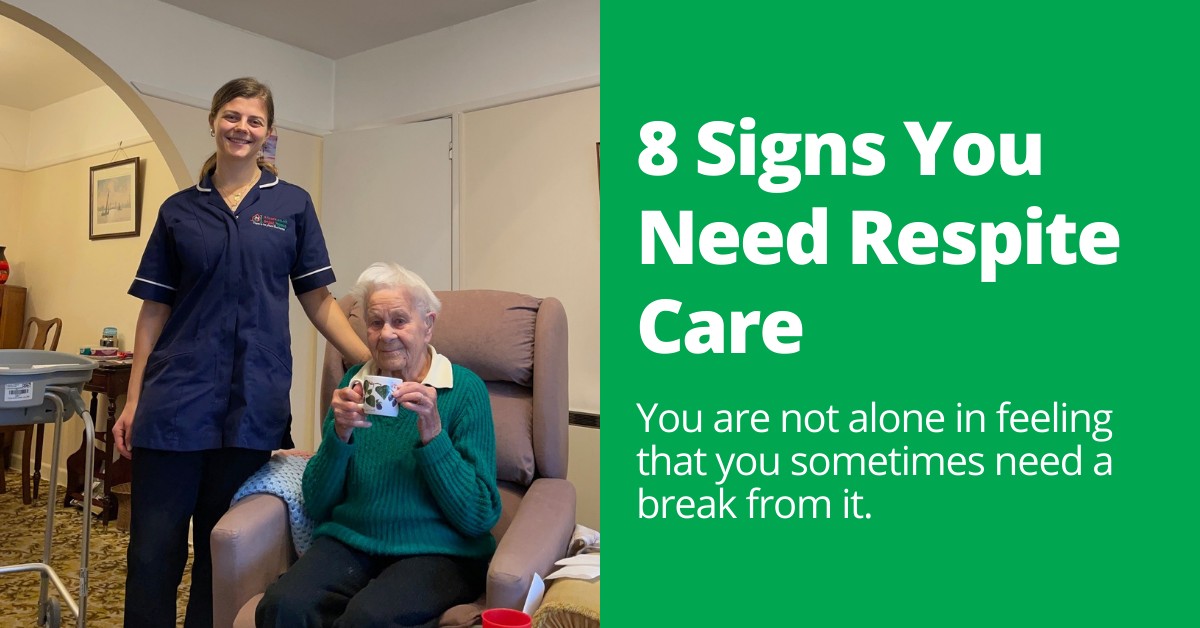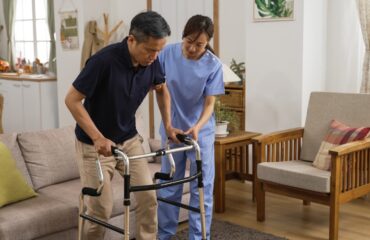Being a caregiver is an incredibly demanding job, you should know about respite care. You are not alone in feeling that you sometimes need a break from caring. In fact, 59% of caregivers report using at least one type of assistance on behalf of the person they are taking care of.
What is Respite Care?
Respite care allows temporary relief for a primary caregiver by giving you a break. There’s a way to receive respite care for everyone. At A1 Care, we offer respite care from the care clients’ homes to minimize disruption in their routine and allow them to be around familiar surroundings to avoid distress.
We can also carry out respite care over different lengths of time. We’ve got you covered, whether this is for a few hours, overnight, or for an extended vacation. Taking a break from care can benefit everyone. For the person you’re looking after, respite can offer additional stimulation into their life. Seeing new faces can add back excitement they no longer have if they are housebound.
This can also give them a change of routine and some variety, adding to their quality of life. As a caregiver, respite can help you manage this role. If you’re unhappy with the way things are going, you won’t be able to provide your full support. This is detrimental to you and the person you’re providing care for. Respite can also help you feel re-energized and restored by relieving any stress you may feel and allowing you to gain back a sense of control over your life. It in turn will help you feel that you can handle more. It has the added benefit of avoiding burnout and feelings of exhaustion and isolation.
Take a chance
Needing a break from being a caregiver is never a bad thing. Everyone needs a break sometimes! For example, a standard 9-5 job allows you to have holidays and breaks on weekends.
Why should being a caregiver be any different?
If you are unsure if you need respite, here are 8 warning signs to look out for. Alternatively, if you would like to find out more about permanent Domiciliary care for your loved one, check out here.
1. An irregular sleep schedule
You might be finding that your caregiving responsibilities are impacting the quality of your sleep. Countless nights tossing and turning from stress. Constantly thinking about what the next day is going to be like.
Sound familiar?
4 in 10 family caregivers find their situation highly stressful. If this impacts your sleep, respite may be a solution to your problems. An irregular sleep schedule can affect your mood and your energy levels. If you feel short-tempered or tired, these may be signs that your responsibilities impact your sleep schedule.
2. You feel that your life has entirely stopped
Do you feel that your caregiving responsibilities have taken up every aspect of your life? This may come in the form of not having time to see your friends or family, or not having time to do activities that bring you happiness. So, if this is the case, respite can be an option for you. It will allow you to see the people you hold dear and do activities you enjoy.
3. Is your emotional health is in decline? You may need respite care
Have you noticed that you are unable to keep your emotions in check? This could mean losing your temper often, having mood swings, or randomly crying over an insignificant event like spilling milk. If the answer is yes, it may be a sign that your emotional health is being affected. Therefore, taking a break to restore your mental health is incredibly important.
4. Your physical health is also taking a hit
Neglecting your physical health is incredibly dangerous, as it can lead to illness or injury. This can be a short bout of illness, or it may come with serious health risks. 17% of caregivers feel that their health has gotten worse as a result of their caregiving responsibilities.
So, you are not alone. Signs you are not looking after yourself physically can come from unhealthy dietary habits, such as skipping proper meals and only snacking or a lack of exercise. High blood pressure or weight gain are important indicators that you are not looking after yourself physically.
5. You’re making more and more mistakes
Making mistakes is incredibly common. Everyone makes mistakes. However, if you’re making more mistakes than usual, this could indicate that you need a break. Making frequent mistakes can put you and the person you’re looking after at risk. Take a break to restore your batteries and clear your head. This will mean you are more focused when you come back and are less likely to make mistakes.
6. Signs of depression
40%-70% of family caregivers have clinically significant symptoms of depression.
If you feel that you are showing signs of depression, it’s time to take a break. It is also essential to seek professional help, whether from a doctor or a therapist if you feel that your depression is severe. There is no shame in asking for help.
7. If you are sick or injured, you may consider respite care
Sometimes things happen outside of our control, such as falling ill or being injured. If you are sick or injured, you won’t be able to carry out your caregiving duties to the best of your ability. In this case, it’s always best to ask for some help. By looking after someone while unwell, you risk causing further injury damage or not having time to recover fully.
8. You just need a break
Sometimes you don’t need a specific reason to get respite care. You might just feel like it’s necessary for you.
It’s okay!
Everyone needs a break sometimes. If you are currently receiving benefits for being a carer, taking a break may affect them. If any of the 8 points above resonate with you, take advantage of our free care assessment for your loved one and your needs. The typical rule is that you can continue to receive your carers allowance for up to 4 weeks in any 6-month period if you have a break from caring.
However, sometimes the rules can be challenging to understand, so we always recommend that you get specialist advice from the carers allowance unit. Any other benefits you may be receiving, including extra amounts for being a caregiver, can also be affected, so always ask for specialist advice. If you feel that respite would benefit you and the person you are caring for, get in contact with us today! We also offer other services, such as live-in care, if you feel that you can no longer be a caregiver. Check out our website for more information.
You can find out about how Domiciliary Care can help your loved one, here.
Find out about affording at-home care, here.




